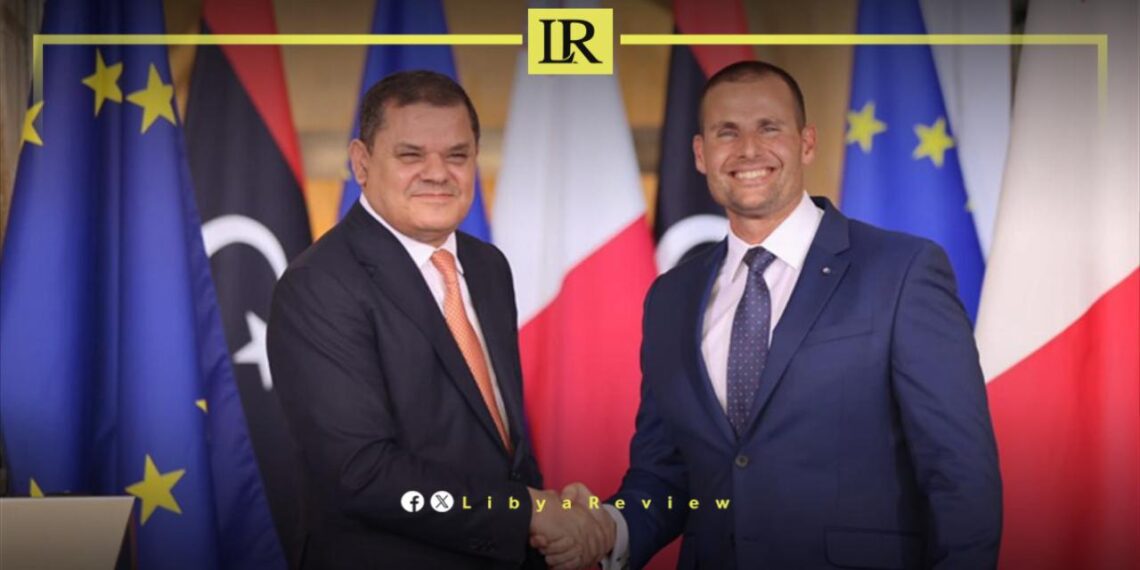On Saturday, the Prime Minister of Libya’s Government of National Unity (GNU) held a phone conversation with his Maltese counterpart Robert Abela to discuss economic cooperation and migration issues.
The call also covered several regional and international matters of mutual interest, according to a statement from Dbaiba’s government.
The conversation emphasized the strong bilateral relations between Libya and Malta and highlighted international efforts to enhance security and stability. Both leaders expressed a shared interest in economic and investment cooperation, especially in renewable energy and managing migration issues.
Malta has recently increased its involvement in Libyan political affairs. This was evident in a meeting between the Acting Head of the United Nations Support Mission in Libya (UNSMIL), Stephanie Williams, and the Maltese Ambassador to Libya, Charles Saliba. They discussed advancing the political process in Libya and the importance of international support for ensuring Libya’s stability and prosperity.
Libya and Malta share a long history of cooperation, particularly in trade, security, and energy. The recent phone call between Dbaiba and Abela is part of ongoing efforts to strengthen these ties, especially as both countries navigate the complex regional dynamics of the Mediterranean.
Economic collaboration has been a cornerstone of Libya-Malta relations. Malta’s strategic location in the Mediterranean makes it a vital hub for trade and investment for Libya. The focus on renewable energy is timely as both nations seek to diversify their energy sources and invest in sustainable projects that promise long-term benefits.
Migration remains a critical area of cooperation. Libya is a major transit point for migrants aiming to reach Europe, and Malta, as one of the closest EU member states, plays a crucial role in managing these migration flows. The cooperation between the two countries is essential for ensuring humane and efficient migration management and enhancing regional security.
The cooperation between Libya and Malta has broader international and regional significance. Strengthening economic ties and collaborative efforts in managing migration contribute to greater stability in the Mediterranean region. Additionally, Malta’s engagement in Libya’s political process underscores the importance of international support in ensuring a stable and prosperous Libya.


